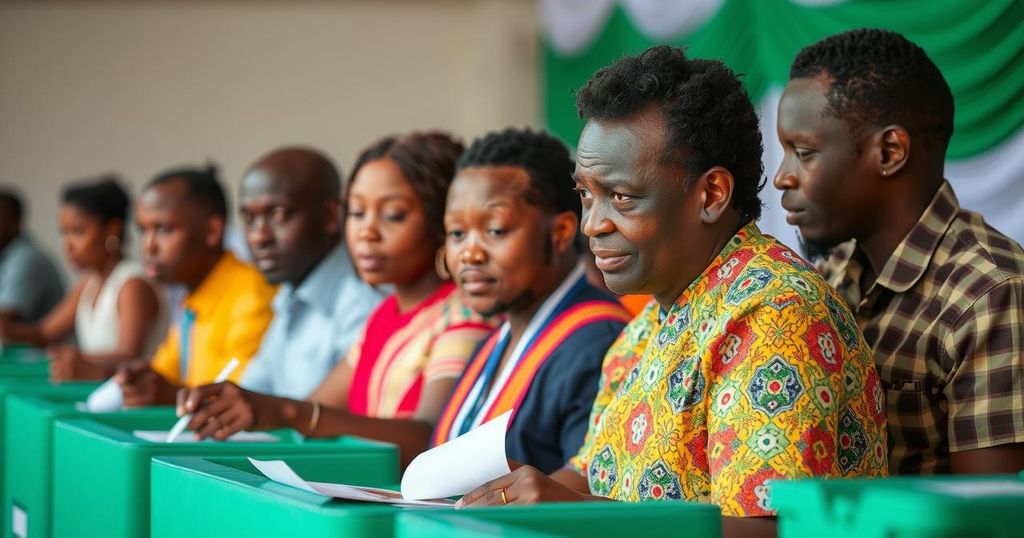Election day in Ghana offers voters the chance to elect a new president amidst economic struggles, including a debt crisis and inflation. With the incumbent Nana Akufo-Addo stepping down, former President John Mahama seeks to reclaim the position against Vice-President Mahamudu Bawumia, among others. Approximately 19 million Ghanaians are registered to vote, with results expected within three days after a ten-hour voting window.
Election day has arrived in Ghana, presenting voters with the crucial opportunity to select a new president amid significant economic concerns such as a debt crisis and rising living costs. The West African nation is poised to welcome a new leader as Nana Akufo-Addo steps down, having completed two terms in office. Former President John Mahama is attempting a comeback with the National Democratic Congress (NDC), while Vice-President Mahamudu Bawumia of the governing New Patriotic Party (NPP) aims to become the country’s first Muslim leader if he wins.
The ballot also includes candidates like businessman Nana Kwame Bediako, popular among younger voters, and Alan Kyerematen, who left the NPP last year. Approximately 19 million Ghanaians are registered to vote, although the only female candidate, Akua Donkor of the Ghana Freedom Party, passed away in October, necessitating the inclusion of her name on ballots despite her disqualification.
As citizens head to the polls, they will elect representatives for 275 parliamentary constituencies as well. Historically, the presidency has oscillated between the NDC and the NPP since the re-establishment of multi-party democracy in 1992, with no party ever winning more than two consecutive terms. Voting is expected to occur over a 10-hour period, with polls opening at 07:00 GMT and closing at 17:00; results will be disclosed within three days. To secure outright victory, a candidate must obtain more than 50% of the votes, otherwise, a runoff election will be conducted by the end of December.
During the final campaign stretch, Bawumia asserted, “What is clear is that notwithstanding the challenges we have had, we have performed better than the government of John Dramani Mahama,” while Mahama countered by stating, “it is a choice between the Ghana we have today and the Ghana we want together. A Ghana of opportunity, prosperity, and justice for all.”
Ghanaians have been significantly affected by soaring inflation, peaking at 54.1% last year, leading to increased poverty levels and deteriorating living standards, according to the World Bank. The nation defaulted on its debt repayments in 2022 and continues to engage in negotiations with international creditors regarding loan restructuring. High unemployment rates, especially among the youth, are expected to influence the election outcomes markedly.
The elections in Ghana are critical as they occur amidst challenging economic conditions characterized by a debt crisis and high inflation rates. The incumbent president, Nana Akufo-Addo, is stepping down after serving two terms, which has created an opportunity for new leadership. The high stakes of this election are underscored by the historical context of the presidency, which has alternated between the NDC and NPP since 1992. This election will determine not only the president but also the composition of parliament, which is vital for governance. The socio-economic struggles faced by citizens play a significant role in shaping voter sentiment, adding to the significance of the electoral process.
In summary, Ghana’s elections represent a pivotal moment in the country’s political landscape, as voters select a new leader amid economic turmoil and high inflation. With major candidates like John Mahama and Mahamudu Bawumia vying for the presidency, the stakes are considerable. The outcome will not only impact the presidency but will also reflect the electorate’s response to ongoing economic challenges. Given the historical context, this election may lead to a significant shift in governance and policy direction in Ghana.
Original Source: www.bbc.co.uk






